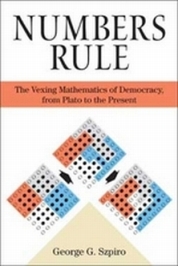- HOME
- INTRO TO THE FORUM
- USE AND MISUSE
- BADLY WRITTEN, BADLY SPOKEN
- GETTING
TO KNOW ENGLISH - PREPARING FOR ENGLISH PROFICIENCY TESTS
- GOING DEEPER INTO ENGLISH
- YOU ASKED ME THIS QUESTION
- EDUCATION AND TEACHING FORUM
- ADVICE AND DISSENT
- MY MEDIA ENGLISH WATCH
- STUDENTS' SOUNDING BOARD
- LANGUAGE HUMOR AT ITS FINEST
- THE LOUNGE
- NOTABLE WORKS BY OUR VERY OWN
- ESSAYS BY JOSE CARILLO
- Elliptical Sentences Often Read And Sound Better Than Regular Sentences
- Avoiding The Embarrassing Pitfall Of Misusing Certain English Words
- Getting A Better Handle On When To Use Or To Just Knock Off “That”
- How To Avoid Semantic Bedlam In The Usage Of The Word “Only”
- Why Is The Sentence “It Can Be Overcame” Grammatically Wrong?
- How Finite Verbs Differ From Non-Finite Verbs
- ABOUT JOSE CARILLO
- READINGS ABOUT LANGUAGE
- TIME OUT FROM ENGLISH GRAMMAR
- NEWS AND COMMENTARY
- BOOKSHOP
- ARCHIVES
TIME OUT FROM ENGLISH GRAMMAR
This section features wide-ranging, thought-provoking articles in English on any subject under the sun. Its objective is to present new, mind-changing ideas as well as to show to serious students of English how the various tools of the language can be felicitously harnessed to report a momentous or life-changing finding or event, to espouse or oppose an idea, or to express a deeply felt view about the world around us.
The outstanding English-language expositions to be featured here will mostly be presented through links to the websites that carry them. To put a particular work in better context, links to critiques, biographical sketches, and various other material about the author and his or her works will usually be also provided.
I hope you’ll enjoy the new selections that will be presented here.Joe Carillo
Over the ages, democratic elections have been anything but simple
The book comes too late for the 2010 Philippine national elections, but perhaps it’s just in time for the national elections in 2016 and the local elections between then and now. I’m referring to George G. Szpiro’s Numbers Rule: The Vexing Mathematics of Democracy, from Plato to the Present (Princeton University Press, 248 pages), which came off the press in the United States only last April. Szpiro, a PhD in mathematics and a journalist who works with the Swiss daily newspaper Neue Zürcher Zeitung, traces the history of the efforts of mathematicians, economists, and political theorists over the centuries to clarify the mathematics of voting and come up with better electoral systems. The book surely would greatly inform the efforts of the Philippine nation to institute electoral reforms should the off-and-on proposal to revise its Constitution finally push through.

As described by Darren Glass, associate professor of mathematics at Gettysburg College, in his review of the Szpiro’s book, democratic elections seek to wisely answer at least these two basic questions: “Given that individual members of society have their preferences, how should we aggregate them to figure out what society as a whole prefers?” “How should we divide financial resources, pieces of cake, or congressional representation between people in a way that is as fair as possible?” These questions may look deceptively simple, but as Szpiro’s book shows, the answers to them have been anything but simple.
In fact, as Anthony Gottlieb observes in another review of Szpiro’s book in the July 26, 2010 issue of The New Yorker, no voting system is flawless, and some are less democratic than others. “In a contest between two people for one job,” Gottlieb explains, “first past the post [where the winner just needs to get more votes than anyone else] seems to be merely common sense. But, as soon as there are three or more candidates on the slate, it can quickly go awry. The least popular candidate could easily win, if the opposition to him or her splits its votes between two or more other candidates. Say sixty per cent of voters are right of center and forty per cent are to the left. In a three-way contest with two equally popular right-wing candidates and one left-winger, a first-past-the-post vote will elect the left-winger, whom only a minority want.”
So, as Szpiro explains with clarity and without recourse to technical jargon, this is why since the birth of democracy in ancient Greece, the simple act of voting has given rise to mathematical paradoxes that have puzzled some of the greatest philosophers, statesmen, and mathematicians, among them Plato, Pliny the Younger, Pierre Simon Laplace, Thomas Jefferson, Alexander Hamilton, and John von Neumann. In his book that deftly combines history, biography, and mathematics, Szpiro tells story of how these visionaries sought to resolve the continually vexing and imprecise aspects of democratic voting.
Read Anthony Gottlieb’s “Win or Lose” in The New Yorker now!
Read Darren Glass’s review of Numbers Rule in the Mathematical Association of America’s website now!
ABOUT THE AUTHOR:
George G. Szpiro, PhD, is a mathematician and journalist. He covers Israel and the Middle East for the Swiss daily newspaper Neue Zürcher Zeitung, for which he also writes an award-winning monthly column on mathematics. His books include Poincaré's Prize: The Hundred-Year Quest to Solve One of Math's Greatest Puzzles (Dutton).






